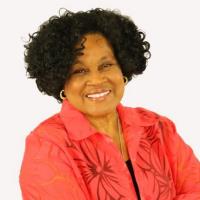Commentary on Jeremiah 8:18—9:1
What do you do when you’ve lost it all? What do you do when all hope seems lost?
What do you do when the problems just keep coming, one after another? Some people might say, “Tie a knot and hold on.” Others would say, “When life give you lemons, add sugar and make lemonade.” Useless clichés, one and all. Such phrases, however well-meaning, speak to the discomfort of the person who utters them, but are meaningless to the person experiencing the pain, be it personal or communal.
Jeremiah, the prophet called “to pluck up and to pull down, to destroy and to overthrow, to build and to plant” understood, perhaps, more than anyone. He understood that, for Israel, things would get worse before they got better.
Could that melancholic, some would say realistic, spirit be why God called him for such a time as this—a time when Israel lost it all. Loss of land, temple, and king was too much to bear. A time of building and planting would come later. For now, Jeremiah understood that this was a time for facing hard truth, the kind of truth that Jesus would later say will “set you free.” War had come. The land and the temple were in ruins. People were in exile. How might Jeremiah get people’s attention? How might he bring hope in such a tragic time? Given the extent of the destruction and devastation, only words of deep lament would do.
No stranger to personal pain, Jeremiah was commanded by God to live alone, bereft the blessings of wife and children or even participation in the social life of the community. in this passage he weeps for the city and for the nation he loves.
Like any good communicator, Jeremiah knows the importance of making a personal connection with his audience. Therefore, in 8:18a he begins with the personal as a way of connecting with the communal. Sorrowfully he writes:
My joy is gone, grief is upon me,
my heart is sick.
Only the heartless wouldn’t identify or take pity on such a heartsick soul. The reader might readily think Jeremiah has suffered the loss of a loved one. Yet, Jeremiah’s weeping is not for himself. Instead, he weeps for the nation he loves. In 8:18b, he continues:
Hark, the cry of my poor people
from far and wide in the land:
The book of Lamentations beginning with words from 1:1 might readily come to mind. The “lonely city … has no one to comfort her.” Like Job, like Jesus, like anyone who ever asks God the “Why” question and Jeremiah hears only silence. Amplified by the silence of God, the pain lingers and will not allow the reader to turn away. Now that he knows he has the reader’s attention, Jeremiah rhetorically asks:
Is the Lord not in Zion?
Is her King not in her?
Since the power of rhetorical questions lies, not in the answer, but in the questions themselves, the shift that follows leaves the reader wondering, who’s talking, who’s weeping, is it Jeremiah? God? Or both? To make a sad situation even sadder, Jeremiah confronts and calls out those who are responsible—the nation itself:
“Why have they provoked me to anger with their images,
with their foreign idols?”
Although people have a role in their own blessings, often they also have a role in their own problems. Accepting responsibility is part of the healing process. Jeremiah, who knows how to make it plain, wants Israel to know just what the nation has done to bring these problems on itself.
Though healing will come, it will be neither quick nor easy. Despite the long wait, through harvest, through summer, things have not gotten better, they’ve gotten worse. It seems that time has stood still.
The harvest is past, the summer is ended,
and we are not saved.
The One might wonder about an implied question, “When, Lord, when? Will it ever end?” Both Jeremiah and God know, there are times when sin has to run its course. In Genesis 15:16, God explains to Abraham: “And they shall come back here in the fourth generation; for the iniquity of the Amorites is not yet complete.” Many harvests and many summers will pass before things change, that is before Cyrus permits the exiles to return. In times like these, it is enough to know that someone hears, sees, and understands what we are going through. Jeremiah/God, God/Jeremiah mourns with the people in hopes to ease the pain and in anguish exclaims:
For the hurt of my poor people I am hurt,
I mourn, and dismay has taken hold of me.
Yet, there are times when knowing someone understands your pain is not enough. Consequently, another rhetorical question hangs in the air as the writer pleads for an answer:
Is there no balm in Gilead?
Is there no physician there?
Why then has the health of my poor people
not been restored?
The situation is awful beyond imagining. There is nothing to do, but cry.
O that my head were a spring of water,
and my eyes a fountain of tears,
so that I might weep day and night
for the slain of my poor people!
The prophet begins and continues in a lament that goes deeper with each word uttered. Israel’s ability to engage in this type of deep lament is one of many reasons its story has remained so powerful for generations.
Once might wish to turn away, but Jeremiah will not have it. This is a reality check if ever there were one. Oh, that we too, in our generation, in our nation, in our world would allow lament to heal our woundedness and release the giftedness1 that lies therein.
Notes:
Flora Slosson Wuellner, Prayer, Fear, and Our Powers: Finding Our Healing, Release, and Growth in Christ, (Nashville: Upper Room Books, 1989), 120.


September 22, 2019